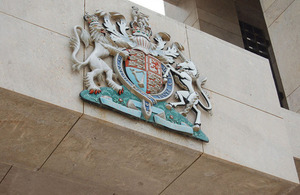Impact of the support of the Westminster Foundation for Democracy for Tunisia’s parliamentary reform
UK funded WFD programme designed to support Tunisia’s new institutions and the foundations that underpin a stable democracy

The Westminster Foundation for Democracy (WFD), sponsored by the UK Government’s Arab Partnership Fund, has recently completed a three year programme (2011—2014) to support Tunisia’s democratic transition by enhancing the accountability and effectiveness of the country’s parliament – known as the National Constituent Assembly (NCA). The programme also strengthened the Tunisian political parties’ ability to engage with citizens.
The programme was designed to support Tunisia’s new institutions and the foundations that underpin a stable democracy: the drafting of inclusive legislation, a reformed constitution, the formation of multiple parties, robust oversight of legislation, democratic processes to pave the way for free and fair elections and good governance.
Asked about the programme’s achievements, Nejib Jeridi, Director of WFD’s programme in Tunisia said the Tunisian NCA, political parties and CSOs had benefited most from being offered a platform to effectively interact with each other, the training on drafting the constitution, policy papers and electoral regulation. Similarly, he added, there was a focus on best practices to follow in order to build engagement between CSOs and the NCA. Tunisian political parties in particular have benefited through cross-party work with UK counterparts on developing stronger internal structures and processes that help increase the participation of women and young people.
Overall, WFD’s project had a considerable positive impact in Tunisia. We asked a number of NCA members and members of the civil society who had benefited from the project for their assessment of its impact. This is what they had to say:
“I learnt discussion techniques, dealing with opponents and the importance of debating using examples.” Said Moufida Marzouki, Member of the Social Affairs Committee, and the Administrative Reform & Anti-corruption Committee
Ferjani Doughman, Chair of the NCA Finance Committee, felt that WFD support was tailored to the Tunisian context and the particular needs of the NCA such as the work on “the inclusion of articles related to the audit of the budget in the Constitution”.
Hela Hammi, Member of the NCA Bureau, felt that the skills she had learnt during WFD training sessions enabled her to effectively debate articles in the draft Constitution and she was “happy when I eventually convinced my fellow MPs to vote for my opinion”.
“I learned drafting policy papers, and will work on the drafting of a policy recommendation paper aiming to push the government to review its policies regarding the legal situation of the agricultural real estate (in Sidi Bouzid).” Was the view of a representative of Civil society, who had participated in a workshop in Kairouan
Another representative of civil society who had attended a workshop in Gafsa said “Such workshops are the best support for networking and cooperation between the various associations and organisations. We have our own vision in my CSO on the legal framework governing the environment and natural resources, and I’ll try to implement this vision through the formulation of a policy recommendation paper for the purpose. The acquaintance between associations that share the same goals will create channels of communication that we will aim to activate in future projects.”